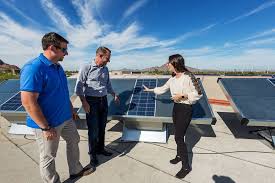
Breaking News
 China Will Close the Semiconductor Gap After EUV Lithography Breakthrough
China Will Close the Semiconductor Gap After EUV Lithography Breakthrough
 The Five Big Lies of Vaccinology
The Five Big Lies of Vaccinology
 Large global study analyzing data from 192 countries has sparked intense debate by suggesting...
Large global study analyzing data from 192 countries has sparked intense debate by suggesting...
Top Tech News
 EngineAI T800: Born to Disrupt! #EngineAI #robotics #newtechnology #newproduct
EngineAI T800: Born to Disrupt! #EngineAI #robotics #newtechnology #newproduct
 This Silicon Anode Breakthrough Could Mark A Turning Point For EV Batteries [Update]
This Silicon Anode Breakthrough Could Mark A Turning Point For EV Batteries [Update]
 Travel gadget promises to dry and iron your clothes – totally hands-free
Travel gadget promises to dry and iron your clothes – totally hands-free
 Perfect Aircrete, Kitchen Ingredients.
Perfect Aircrete, Kitchen Ingredients.
 Futuristic pixel-raising display lets you feel what's onscreen
Futuristic pixel-raising display lets you feel what's onscreen
 Cutting-Edge Facility Generates Pure Water and Hydrogen Fuel from Seawater for Mere Pennies
Cutting-Edge Facility Generates Pure Water and Hydrogen Fuel from Seawater for Mere Pennies
 This tiny dev board is packed with features for ambitious makers
This tiny dev board is packed with features for ambitious makers
 Scientists Discover Gel to Regrow Tooth Enamel
Scientists Discover Gel to Regrow Tooth Enamel
 Vitamin C and Dandelion Root Killing Cancer Cells -- as Former CDC Director Calls for COVID-19...
Vitamin C and Dandelion Root Killing Cancer Cells -- as Former CDC Director Calls for COVID-19...
 Galactic Brain: US firm plans space-based data centers, power grid to challenge China
Galactic Brain: US firm plans space-based data centers, power grid to challenge China
How Zero Mass is using solar panels to pull drinkable water directly from the air

At some point while standing on the roof of an old car dealership in Scottsdale, Arizona, I noted that it was hot outside. Almost as if on cue, our cameras began to overheat and shut down.
The founder of Zero Mass Water told me that this kind of early November heat was actually mild for the Arizona desert – and that regardless of the dry climate, he and his team were still able to produce water.
Because that's what Zero Mass does: harvest drinking water out of thin air, using a combination of materials science, solar power, and predictive data. The goal is to use this technology to go from a position of "water scarcity to water abundance," said founder and chief executive Cody Friesen, regardless of whether you're in an area where access to clean water is a serious problem, or living in a place where bottled water is often half-drunk and discarded.
Zero Mass's water-harvesting technology has been in the works for the past six years. It was first developed at Arizona State University, where Friesen was teaching engineering and materials science. Over the past couple years, Zero Mass's panels — called Source — have been available to specific customers: multi-lateral institutions, recipients of emergency aid, investors, and friends of the company.

 This is why RAM costs so much
This is why RAM costs so much

